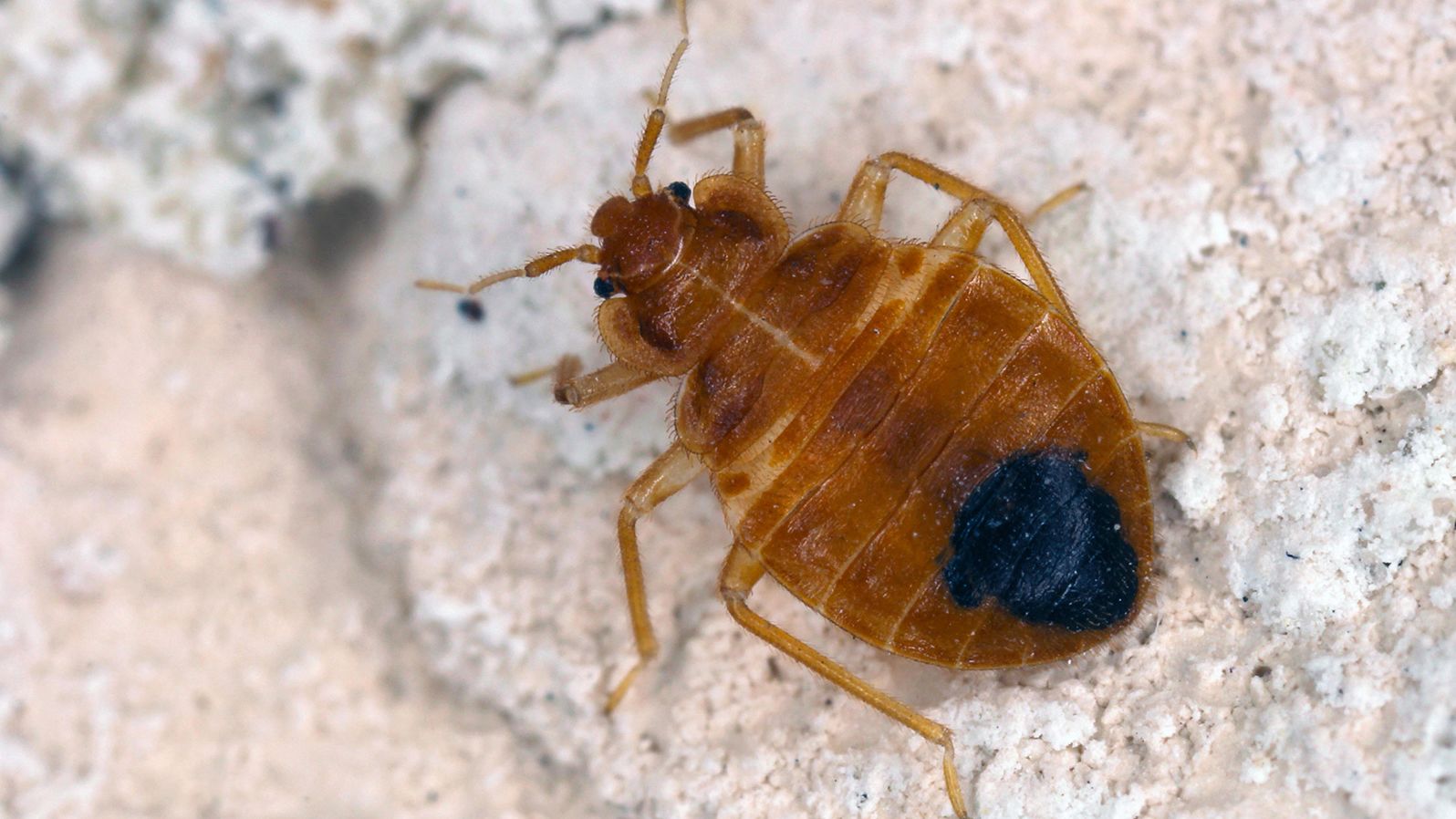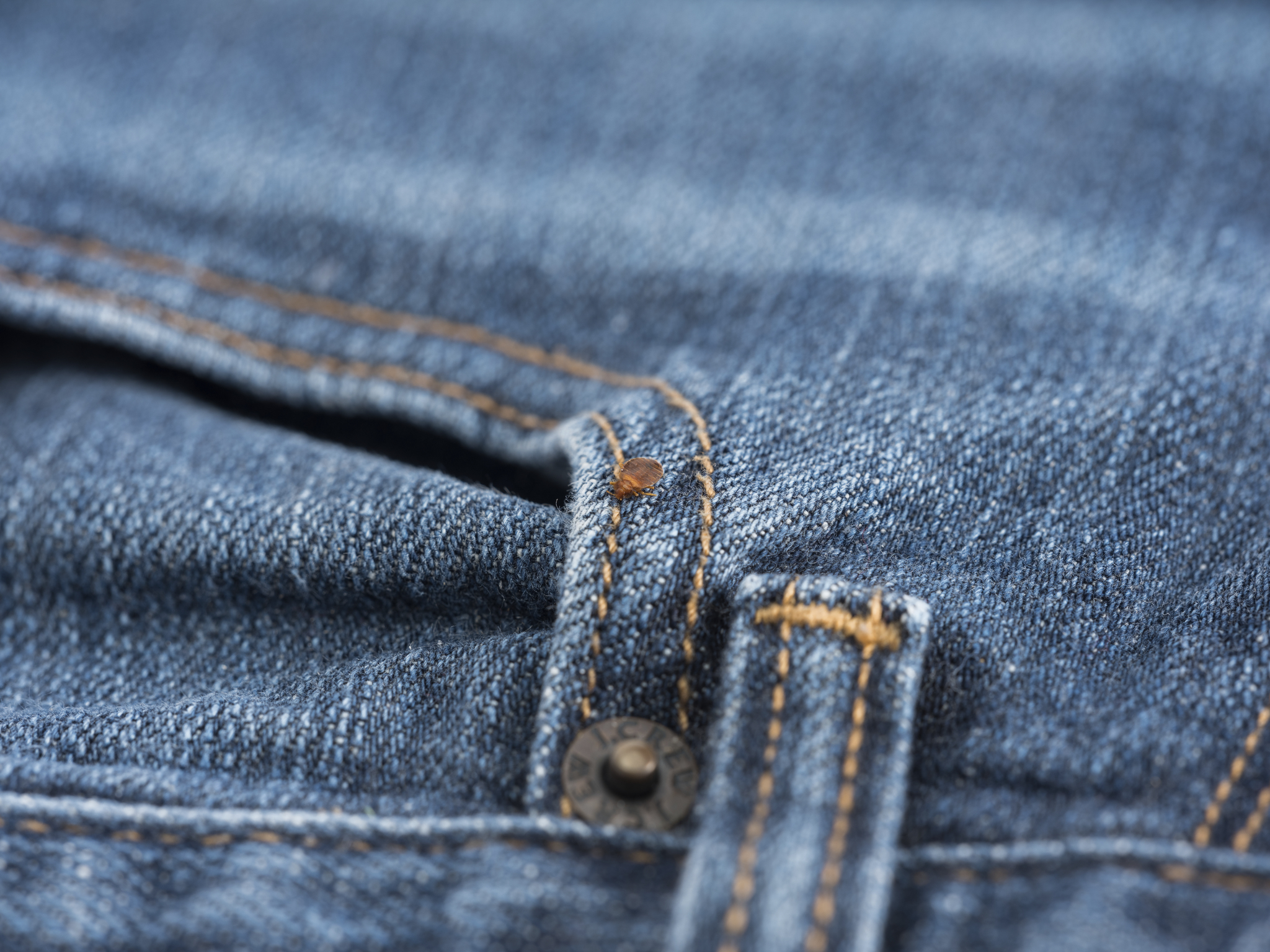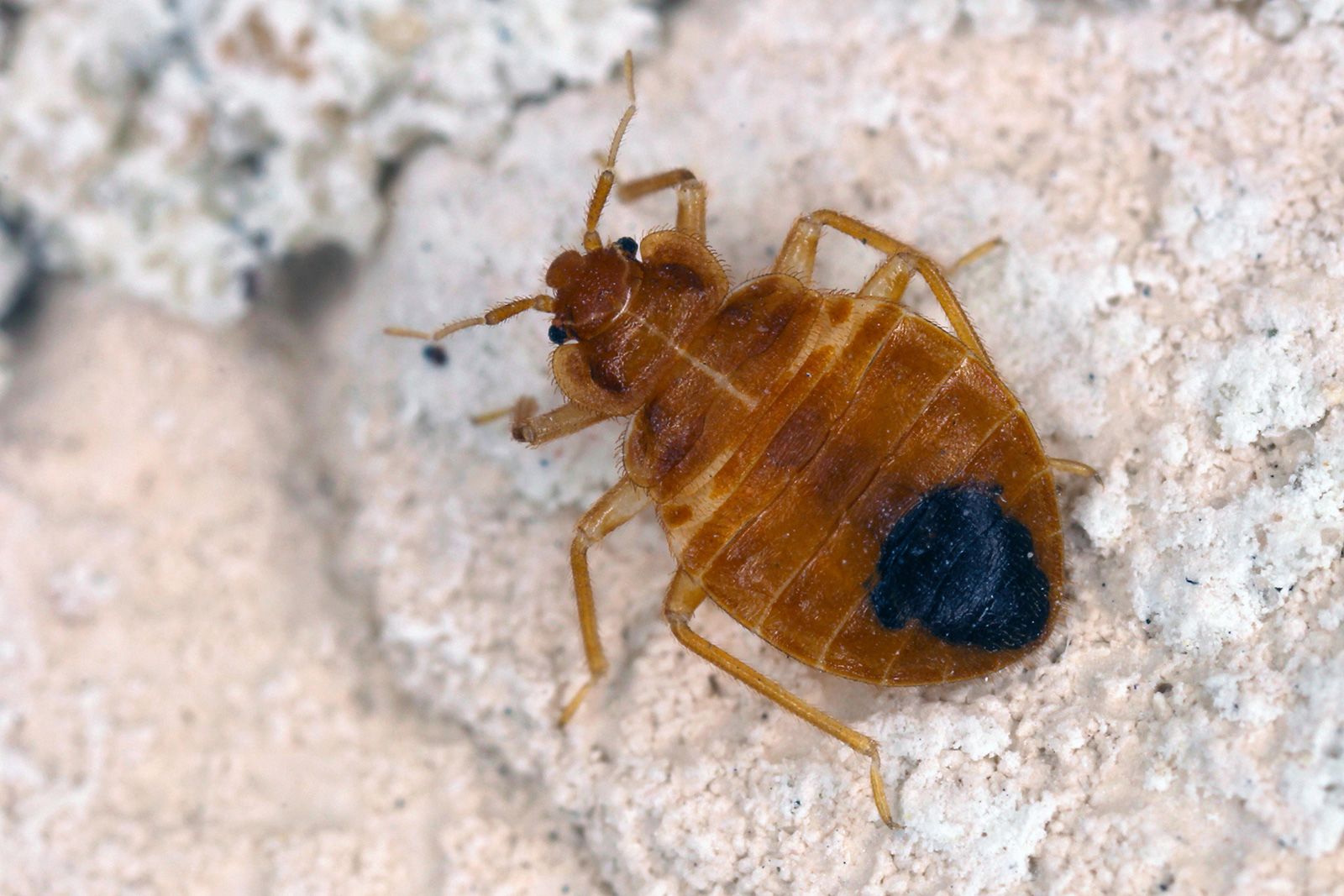To travel without bed bugs, inspect hotel rooms for signs of infestation and keep luggage elevated off the floor. Bed bug prevention is essential for a stress-free trip and peace of mind.
When traveling, it is crucial to take proactive steps to avoid bringing these pesky insects back home with you. By following simple precautions and staying vigilant, you can protect yourself from potential bed bug encounters during your travels. We will explore effective strategies and tips to help you stay bug-free while on the go.
Get ready to enjoy your journey worry-free and without any unwanted bed bug surprises.

Credit: www.cnn.com
Identifying Potential Bed Bug Risks While Traveling
When traveling, it’s essential to be mindful of potential bed bug risks to avoid bringing them home. Inspect hotel rooms for signs of infestation such as dark spots on mattress seams before settling in. Keeping luggage elevated and away from the bed can also help prevent bed bugs from hitching a ride.
Inspecting Hotel Rooms Upon Arrival
– When you first enter your hotel room, take a few minutes to perform a thorough inspection for bed bugs to ensure a safe stay. – Start by placing your luggage in the bathroom or on a luggage rack away from any upholstered furniture or the bed itself. – Carefully examine the bedding, including the sheets, pillows, and mattress for any signs of bed bug activity such as dark spots or shed exoskeletons. – Inspect the seams, tufts, and folds of the mattress as bed bugs often hide in these areas. – Use a flashlight to check behind the headboard and in the cracks and crevices of any furniture in the room. – Don’t forget to inspect the curtains, carpet, and any upholstered furniture as well. – If you notice any signs of bed bugs, request a room change immediately and make sure to thoroughly inspect the new room before settling in.Knowing The Signs Of Bed Bug Infestation
– Familiarizing yourself with the signs of a bed bug infestation can help you identify potential risks and take appropriate action. – Look for small, rust-colored stains on sheets, pillowcases, or mattresses, as these could be fecal smears left behind by bed bugs. – Keep an eye out for tiny translucent eggs or eggshells, as well as molted bed bug skins, which indicate an infestation. – Bed bugs also leave behind a distinct, sweet, musty odor. If you notice an unusual smell in your hotel room, it’s worth investigating further. – It’s important to remember that bed bugs can hide in any cracks or crevices, so be sure to inspect not only the bed but also surrounding furniture and fixtures. – If you come across any signs of a bed bug infestation, immediately report it to the hotel staff and request a different room or consider finding alternate accommodation.By diligently inspecting hotel rooms upon arrival and being able to identify the signs of bed bug infestation, you can significantly reduce the risk of bringing these unwanted pests back home with you. Stay vigilant, take necessary precautions, and enjoy your bug-free travels.
Credit: www.orkin.com
Packing Precautions For Bed Bug Prevention
Packing smartly can help prevent bed bugs from hitching a ride back home with you. Consider the following tips for a bed bug-free travel experience:
Using Bed Bug Proof Luggage And Bags
- Opt for luggage and bags specially designed to resist bed bugs.
- Ensure zippers and seams are tightly sealed to prevent bugs from entering.
- Regularly inspect and clean your luggage after each trip.
Choosing Clothing And Items Wisely
- Pack light-colored clothes to easily spot any unwanted pests.
- Avoid bringing secondhand items or used furniture on your trip.
- Store clothes in sealable plastic bags to minimize contact with bed bugs.
Practical Tips For Minimizing Bed Bug Exposure
Traveling can be exciting, but the last thing you want to bring back home are bed bugs. Follow these practical tips to minimize bed bug exposure during your travels.
Keeping Luggage Away From Beds And Upholstered Furniture
Bed bugs love to hide in luggage, so keep your bags off the bed and upholstered furniture while staying in hotels or accommodations.
Using Protective Bedding Covers
Invest in protective bedding covers for your mattress and pillows to create a barrier against bed bugs.
Responding To Potential Bed Bug Encounters
Learn how to travel bed bug-free with these essential tips. Discover ways to prevent potential bed bug encounters and ensure a worry-free trip.
What To Do If You Suspect Bed Bugs In Your Hotel Room
If you suspect bed bugs in your hotel room, it’s important to act swiftly to minimize the risk of bringing these pests back home with you. Here are some steps you can take:
1. Inspect the Room
Upon entering your hotel room, conduct a thorough visual inspection for any signs of bed bugs. Start by checking the mattress, including the seams, corners, and tufts. Also, inspect the headboard, nightstands, and any upholstered furniture. Look for small reddish-brown stains, dark spots, shed skins, or live bugs.
2. Inform the Hotel Staff
If you discover any evidence of bed bugs, immediately notify the hotel staff. They should be responsive in addressing the issue and providing you with a different room. Avoid changing rooms within close proximity, as bed bugs can easily spread to adjacent rooms.
3. Keep Your Luggage Off the Floor
To prevent bed bugs from crawling into your belongings, elevate your suitcases and other bags off the floor. Use luggage racks or place your bags on hard surfaces like countertops or tables. Alternatively, consider using bed bug-proof luggage encasements to further protect your belongings.
4. Launder Your Clothes
When you return home, wash all your clothes, even those that weren’t worn, in hot water. The high temperature will effectively kill any potential bed bugs that may have hitched a ride. Additionally, tumble dry the garments on high heat for at least 30 minutes to ensure thorough elimination of any remaining pests.
Managing Bed Bug Bites And Symptoms
Although prevention is key, sometimes bed bug bites can still occur. If you find yourself dealing with bed bug bites, use the following measures to manage the symptoms:
1. Clean the Bites
Wash the affected area with mild soap and warm water to cleanse the bites. Avoid scratching, as it can lead to further irritation and potentially cause an infection.
2. Apply Calamine Lotion or Hydrocortisone Cream
To reduce itching and inflammation, apply a thin layer of calamine lotion or hydrocortisone cream to the bed bug bites. Follow the instructions on the product label for proper usage.
3. Take Antihistamines
If the itching persists, consider taking over-the-counter antihistamines. These oral medications can help alleviate allergic reactions and reduce itching caused by bed bug bites. Remember to follow the recommended dosage instructions.
By following these steps to respond to potential bed bug encounters, you can minimize the risk of bringing these unwelcome pests home with you. Remember to stay vigilant during your travels and take immediate action if you suspect bed bugs in your hotel room.
Preventive Measures For Bed Bug Control Post-travel
Travelling without worries of bringing home unwanted bed bugs is a priority for any traveler. To ensure a peaceful and bed bug-free return from your trip, implementing preventive measures post-travel is crucial. By following these simple yet effective tips, you can significantly minimize the risk of encountering bed bugs.
Inspecting And Cleaning Luggage After The Trip
After returning from your journey, it’s imperative to thoroughly inspect and clean your luggage to prevent any potential bed bug infestation at your home. Take time to carefully examine all crevices, seams, and pockets of your bags, backpacks, and suitcases. Use a vacuum to remove any visible debris, and then wipe down the exterior with hot, soapy water.
Laundry And Dry Cleaning Tips
For clothing and fabric items that were part of your travel, promptly wash and dry them on high heat as this effectively kills any bed bugs or eggs that may have hitchhiked their way back with you. Separately bag the items until they are laundered to prevent the spread of bed bugs to other areas. Consider dry cleaning any delicate garments for thorough decontamination.

Credit: arrowexterminating.com
Frequently Asked Questions For How To Travel Without Bed Bugs?
How Can I Prevent Bed Bugs While Traveling?
To prevent bed bugs while traveling, inspect hotel rooms for signs of infestation, keep luggage elevated, and use bed bug-proof luggage encasements. Upon returning home, immediately wash and dry all clothing on high heat to kill any potential bed bugs.
Are There Any Natural Remedies To Repel Bed Bugs?
Yes, some natural remedies to repel bed bugs include essential oils like lavender, tea tree, and peppermint. These scents are known to repel bed bugs, so using essential oil sprays or diffusers can help deter them from infesting your belongings.
What Are Common Signs Of Bed Bug Infestations In Hotels?
Common signs of bed bug infestations in hotels include small bloodstains on bedding, shed bed bug skins, and musty odor in the room. Additionally, guests may notice small, reddish-brown insects or their eggs in seams and crevices of furniture.
Can Bed Bugs Be Carried Home From Traveling?
Yes, bed bugs can easily be carried home from traveling by hitching a ride on luggage, clothing, or personal belongings. It’s important to inspect and take preventative measures to avoid bringing bed bugs into your home after traveling.
Conclusion
It is crucial to take precautions when traveling to prevent encountering bed bugs. By following these simple steps and being aware of the signs of an infestation, you can significantly reduce the risk of bringing these unwanted pests home with you.
Remember to inspect your accommodations, pack smartly, and take immediate action if you suspect a bed bug problem. By being proactive, you can enjoy your travels bed bug-free. Safe travels!
Related posts:

I’m MD Tanvir, and I bring years of expertise gained from working closely with pest control companies to the forefront. My journey in the industry has inspired me to launch Bug Battler, a platform aimed at equipping people with the know-how to combat pests autonomously. Through Bug Battler, I aim to empower individuals with practical insights to tackle pest infestations effectively.

